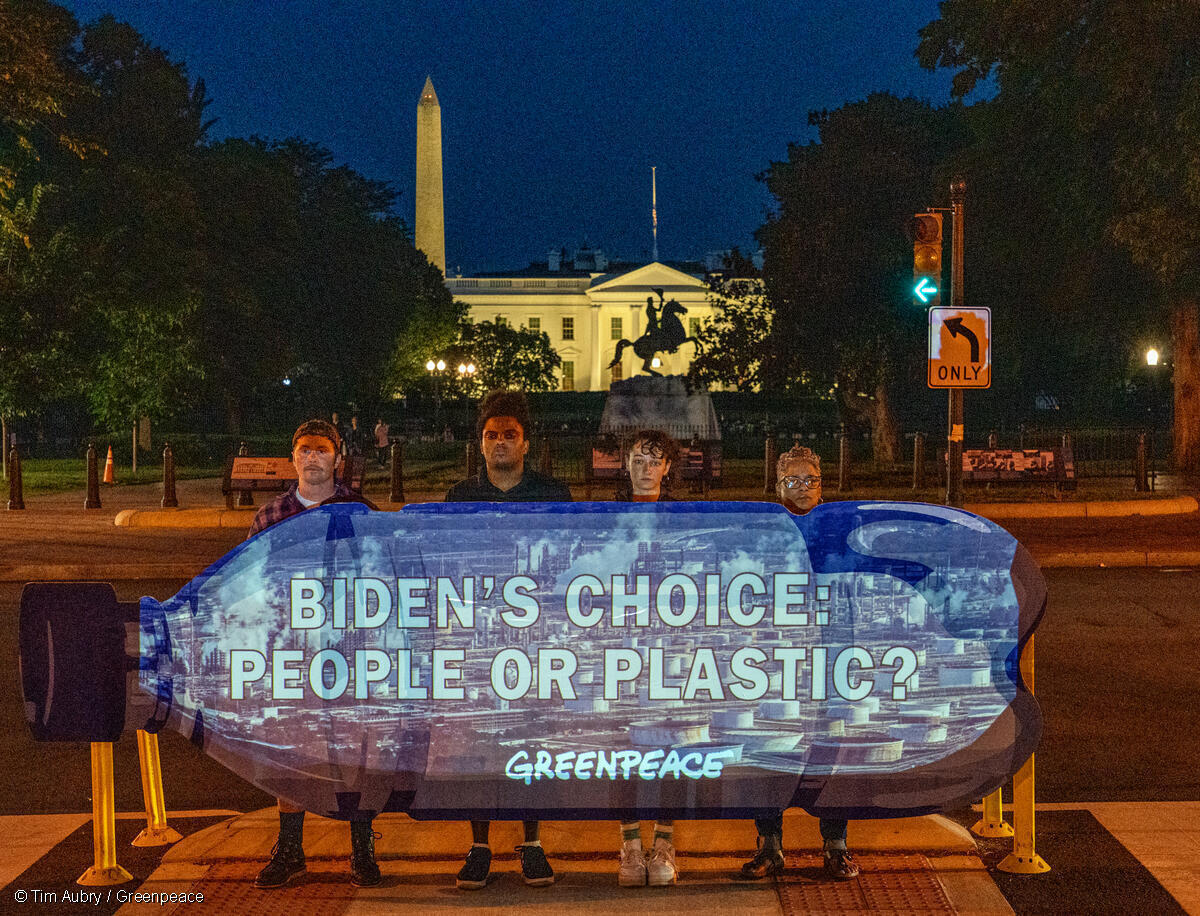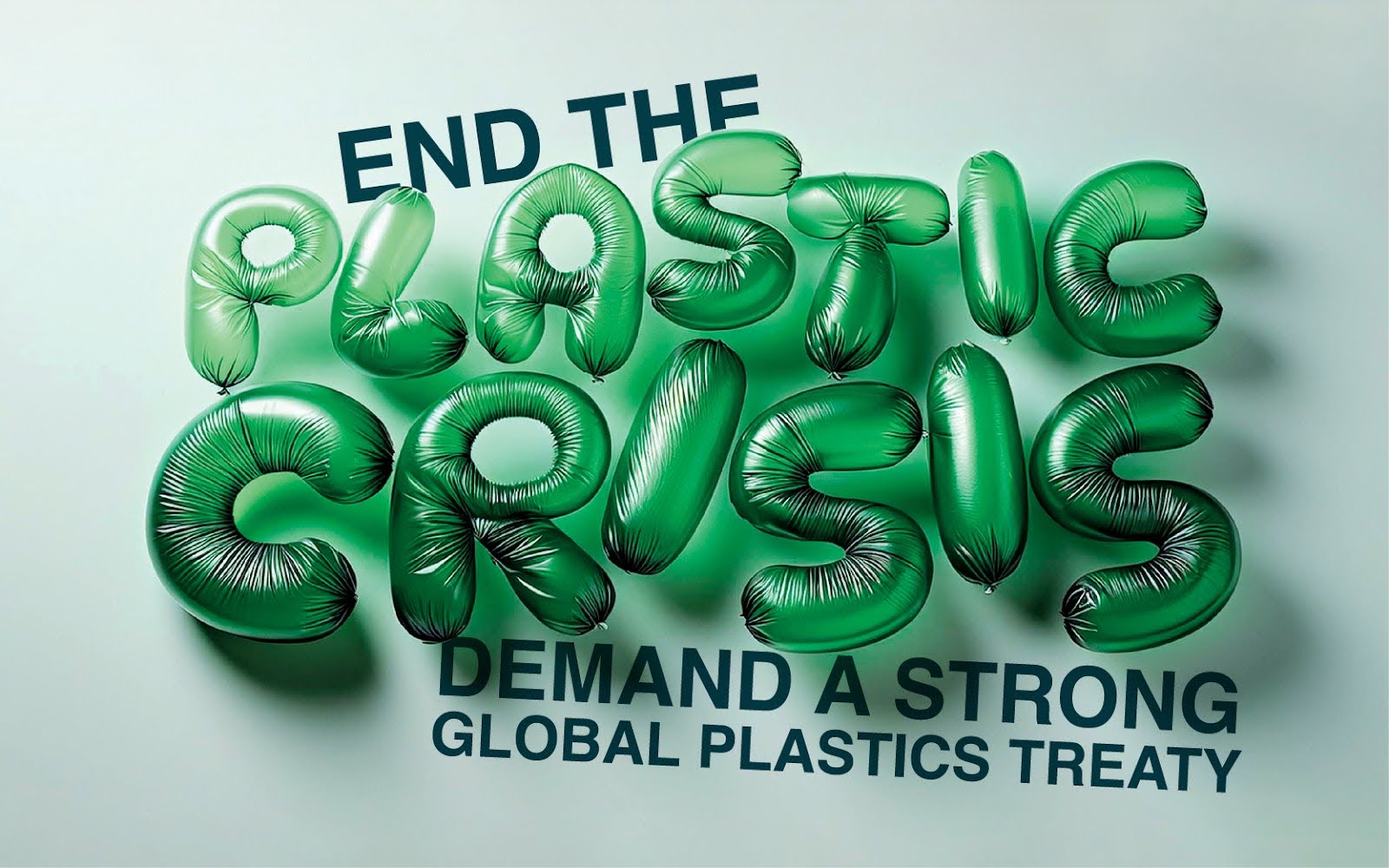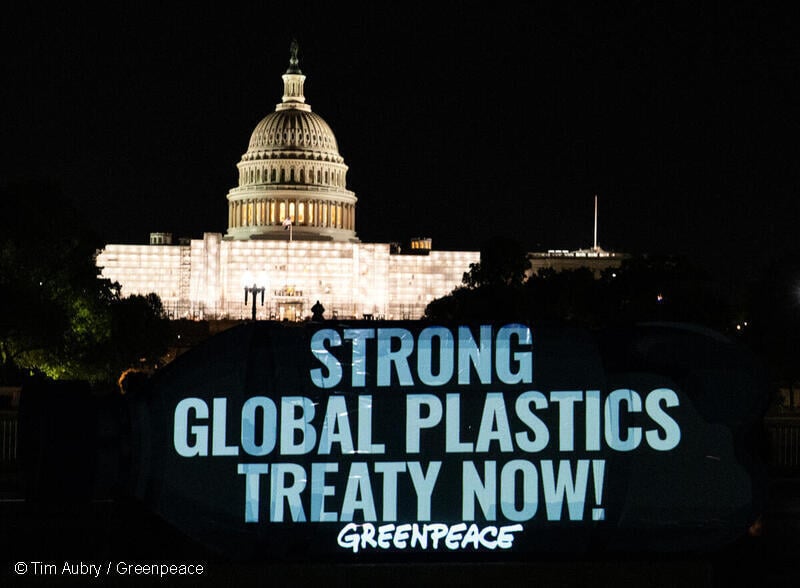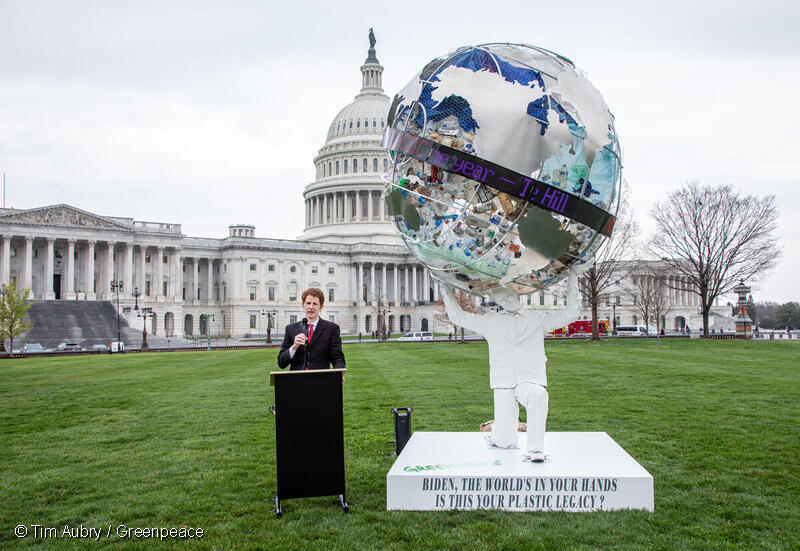Today, Jane Fonda, Jason Momoa, Joaquin Phoenix, Shailene Woodley, Laura Dern, and other actors and activists renowned for their environmental advocacy joined Greenpeace USA and its Executive Director, Ebony Twilley Martin, to issue an open letter to President Biden calling for him to strengthen the United States’ position on the Global Plastics Treaty. The letter, which comes ahead of the negotiations for the treaty that will resume in Paris from May 29 to June 2, urges the Biden Administration to support a legally binding treaty that caps and phases down plastic production, provides a just transition for workers in the plastics sectors, and protects frontline communities.

Today, Jane Fonda, Jason Momoa, Joaquin Phoenix, Shailene Woodley, Laura Dern, and other actors and activists renowned for their environmental advocacy joined Greenpeace USA and its Executive Director, Ebony Twilley Martin, to issue an open letter to President Biden calling for him to strengthen the United States’ position on the Global Plastics Treaty. The letter, which comes ahead of the negotiations for the treaty that will resume in Paris from May 29 to June 2, urges the Biden Administration to support a legally binding treaty that caps and phases down plastic production, provides a just transition for workers in the plastics sectors, and protects frontline communities.

Washington, DC (May 18, 2023) – Today, Jane Fonda, Jason Momoa, Joaquin Phoenix, Shailene Woodley, Laura Dern, and other actors and activists renowned for their environmental advocacy joined Greenpeace USA and its Executive Director, Ebony Twilley Martin, to issue an open letter to President Biden calling for him to strengthen the United States’ position on the Global Plastics Treaty. The letter, which comes ahead of the negotiations for the treaty that will resume in Paris from May 29 to June 2, urges the Biden Administration to support a legally binding treaty that caps and phases down plastic production, provides a just transition for workers in the plastics sectors, and protects frontline communities.
The letter states: “The decision you make on this critical issue will help define your legacy – will you be the President who helped put an end to the plastic pollution crisis or someone who let it spiral further out of control? We’re calling on you to do the right thing.”
The full letter text and list of signatories are available here.
Lisa Ramsden, Greenpeace USA Senior Plastics Campaigner, said: “Many environmental groups and frontline communities are disappointed with the US’ current position on the treaty, as it does not call for a cap on plastic production and instead focuses on recycling. Recycling will never solve the plastic waste problem. We must stop plastic waste at its source, and we’re calling on President Biden to put aside fossil fuel and plastics industry interests and lead us on the path that prioritizes human health, biodiversity, and our communities.”
On Monday, Greenpeace USA projected messages near the White House advocating for a strong Treaty and challenging the President to choose between “People or Plastic?”
Photos of the projections are available here.
Plastics, 99% of which are made from fossil fuels, are polluting and harmful at every stage of their life cycle, from extraction as fossil fuel to disposal. All over the world, marginalized communities face disproportionate health impacts from the plastics industry, including higher rates of cancer, asthma, and adverse birth outcomes, through petrochemical facilities, incinerators, landfills, polluted waterways, and the burning of illegally imported plastic. Many of these communities also bear the worst impact of the plastic-fueled climate crisis.
Plastics exported under the guise of recycling, usually from high-income countries, to the most vulnerable communities, mostly in low- and middle-income countries, are often dumped or burned, leading to environmental and food chain contamination. Plastic fragments have been found in the food we eat, the air we breathe, the water we drink, and even in our blood and placenta. Approximately 6 million tonnes of plastic waste were traded internationally in 2018.
A Greenpeace USA report last year showed that less than 5% of plastics the USA ever produced have been recycled. Despite its impact on our oceans, waterways, and communities, global plastic production has increased year after year since the 1950s. The plastics industry—including fossil fuel, petrochemical, and consumer goods companies- is poised to increase plastic production, at least up to 2050.
At the Paris talks, formally known as the Second Intergovernmental Negotiating Committee (INC2), Greenpeace is advocating for a seven-point plan that the Global Plastics Treaty should:
- Achieve immediate, significant reductions in plastic production, establishing a pathway to end virgin plastic production.
- Promote a shift to refill- and reuse-based economies, creating jobs and standards in new reuse industries and supporting established zero-waste practices.
- Support a just transition for workers across the plastics supply chain, prioritizing waste pickers who collect approximately 60% of all plastic that is collected for recycling globally.
- Promote non-combustion technologies for plastic stockpiles and waste disposal.
- Institute the “polluter pays” principle for plastic waste management and for addressing the health and environmental costs throughout the plastics life cycle.
- Significantly improve regulation, oversight, safety, and worker protections for existing recycling facilities.
- Require transparency about chemicals in plastics and eliminate all toxic additives and chemicals used in the plastics life cycle.
# # #
Greenpeace USA is part of a global network of independent campaigning organizations that use peaceful protest and creative communication to expose global environmental problems and promote solutions that are essential to a green and peaceful future. Greenpeace USA is committed to transforming the country’s unjust social, environmental, and economic systems from the ground up to address the climate crisis, advance racial justice, and build an economy that puts people first. Learn more at www.greenpeace.org/usa.



